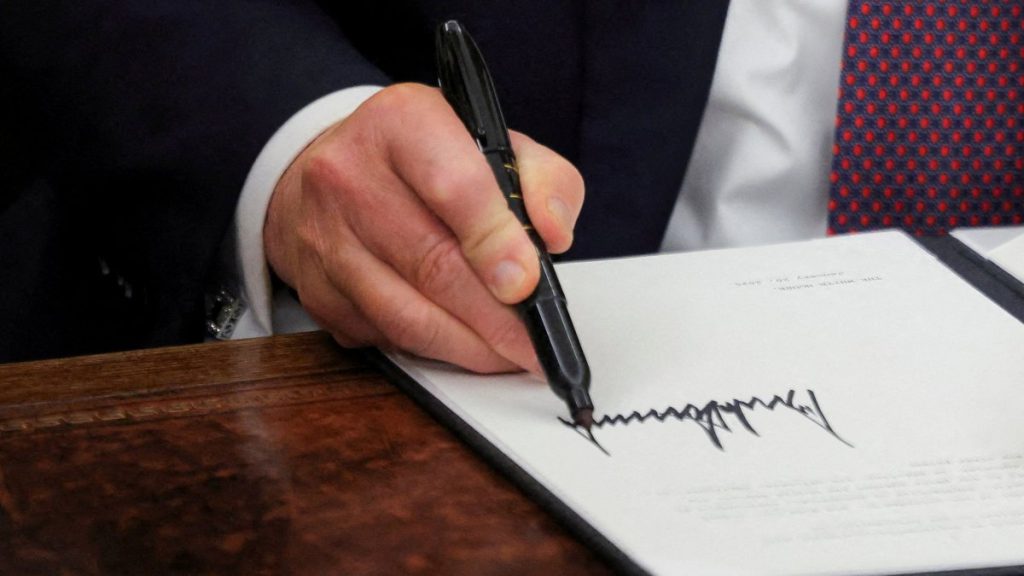Donald Trump has made a fast start to his second term as the president of the U.S., the strongest state in the world. Naturally, not only Americans but also the world’s states and nations immediately reacted to this government change. One day after the inauguration of Trump, the leaders of the two rival countries, namely Russian President Vladimir Putin and Chinese President Xi Jinping, held a virtual meeting.
Trump threatened both countries before he was sworn into office. While Trump threatened tariffs on China, calling Beijing “an abuser,” he warned Russia to end the war in Ukraine. Putin and Xi, who decided to increase their bilateral relations to “greater heights,” discussed relations with Trump’s America. They declared their determination to “continue deepening strategic coordination, firming up mutual support and safeguarding legitimate interests.” When Russia faced economic sanctions from Western countries, it turned to China and increased its bilateral trade with China by $240 billion by 2023, in just two years. The two leaders called on Trump to have a mutually beneficial and respectful relationship with the two countries.
Similarly, the leaders of the two major allies, namely the German Chancellor Olaf Scholz and French President Emmanuel Macron, held a face-to-face meeting last Wednesday, two days after Trump’s inauguration. Macron and Scholz agree that the two countries must act together to create a strong Europe. Scholz declared that Trump “will be a challenge” for Europe, clearly underlining his concern and claiming that “Europe will not cower and hide, but instead be a constructive and assertive partner.” Furthermore, Scholz stated, “Europe must be strong and resilient in a world that is, to put it mildly, in motion,” indirectly reflecting his concern for Trump’s unilateral and unexpected moves. European leaders, who fear Trump’s intervention in their domestic affairs, have begun to underline political independence.
Western academics have already begun to discuss the Trumpian policies. Some try to persuade the international community that the Trump administration is an anomaly, while others have tried to whitewash Trump’s new government. The first group still hopes to claim that Western values are universal and that Western hegemony will continue to shape the world system. Therefore, they claim that the Trump administration does not fall into any Western political or theoretical framework. For instance, an article published by Foreign Affairs magazine claims that “Trump’s ‘America First’ is not realism.”
Analyzing Trump’s strategies
It is quite clear that Donald Trump has been following an offensive realist policy and political strategy. While his “America First” motto indicates the interest-based realist perspective, his unilateralist and interventionist foreign policy understanding represents the offensive character of the realist paradigm. One may question the rationality of Trump’s policies but never his realism. We should not forget that the two main concepts insistently utilized by Trump are “interest” and “power.” He always underlines American interests and the best language that he speaks is power.
The Trump administration is generally characterized by the following features, all of which are reflections of the realist paradigm: more government intervention, less common (global, continental or regional) causes, more mercantilism, less free trade (and protectionism) and more big-power arrogance.
His administration is a typical representation of power politics. Neither rival/enemy countries nor allies are immune to Trump’s offensive. As soon as he came to power for the second term, he began threatening both rivals and allies alike. He does not believe in multilateralism, globalism and international organizations. For this reason, he has recently withdrawn from the climate change agreement and the World Health Organization (WHO).
Each man for himself
Trump does not care what others, whether allies or rivals, think. This is why European countries are concerned about the possible measures they intend to take in the near future. He has already declared that all NATO members should allocate at least 5% of their national budget for defense. Interestingly, he asked NATO members to increase their defense budget to 2% during his first term. Now, he asks for more costs to be paid by the Europeans. Considering his strict unilateral policies, the continental European countries are in real danger of fading into global insignificance. Many European politicians have begun to react against this potential ineffectiveness.
As a result of this offensive realist understanding, Trump has begun to warn all leaders. All countries and leaders have been trying to reposition themselves vis-a-vis the Trump administration. While some countries such as Colombia have decided to resist the U.S.’ pressure and threats, some others such as Saudi Arabia have taken preemptive steps and decided to improve its relations with the Trump administration.
Colombia is not the only country that has to develop strategies to counter Trump’s policies. The U.S.’ two immediate neighbors, Mexico and Canada, are concerned about the expansionist rhetoric. Similarly, Panama and Denmark are concerned about his demand to annex the Panama Canal and Greenland. Many, who have been American allies for decades, are now concerned about their sovereignty, one of the basic foundations and principles of the modern nation-state system. Trump clearly stated that he may violate the sovereignty of some of his allies if they do not abide by his policies.
Some countries have decided to try to get along with the new U.S. government. Many Middle Eastern countries, which are largely dependent on the U.S., have taken preemptive steps. For example, Saudi Crown Prince Mohammed bin Salman declared that Riyadh is ready to offer $600 billion for new investments in the U.S. Trump asked the crown prince to increase the amount of the finance to $1 trillion and requested lower oil prices. He added that the kingdom will accept his offer because the U.S. has been “very good to them.”
All in all, Trump has been following his own version of realism. He shares and implements most of the principles of traditional realist understanding. However, he blended these principles with his own practices and methods.


